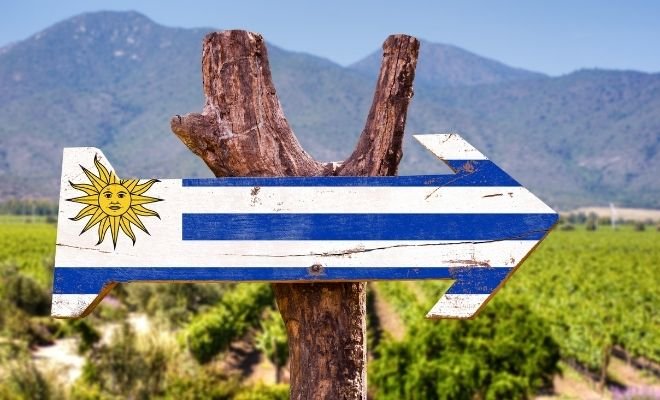Incredible beaches where you can do the best surfing, a dynamic, artistic and cultural capital not to be forgotten, nature reserves where you can enjoy everything from the wildest green nature to the ecotourism observation of animals such as sea lions and delicious gastronomy, mainly for lovers of meat, Uruguay is a country worth visiting. Undoubtedly, anyone who visits this beautiful country will enjoy it greatly, whether for tourism, work or study reasons.
Uruguay has a lot to offer, even on a linguistic level, since Uruguayan Spanish stands out for its particular use of words. Similar to mainly due to the use of the pronoun “vows” instead of “too” or “used”, used in other regions of Latin America. In addition, it has its own conjugation in the present: for example, “you have” instead of “you have” or “you are” instead of “you are”. So, if you plan to go to Uruguay soon, it doesn’t hurt to go prepared, with a list of the typical and most colloquial Uruguayan expressions, words and phrases and their meaning. Here they go!
Uruguayan words that you have to know yes or yes
We start with some basic words that you should know if you want to go to Uruguay and blend in a bit with the environment. There is nothing worse than being on vacation or visiting a country and not understanding what they are telling us. So here we go! The basic words of Uruguayan Spanish that you have to know are these:
Botija or guru
Meaning: if someone talks to you about a biota or a guru that passes by, they are referring to a rather small child or boy (until adolescence). So if you take your son with you and they call him a biota, don’t panic, they are not insulting him.
Chance
Meaning: As chance is an opportunity or a chance to achieve something.
Vo/Bo
Meaning: the same Uruguayans do not agree on whether to write with boo with v, since on some occasions it seems that it comes from the contraction of “biota” and others from the pronoun “vows”. Be that as it may, the truth is that it is filler that is constantly used, especially among friends. It is similar to the Argentine “chef”. “I really want to play soccer, boo!” “Vo, can you pass me the mushrooms?”
Champions
Meaning: It’s the sneakers or the tennis shoes, depending on what you call them. In Uruguay they say “champions”, perhaps because with them you feel like a champion.
Vichar
Meaning: if you feel like going to browse one of the Uruguayan markets, but not really buying, just wanting to look, then you are going to visit.
Coverall
Meaning: Do you want to buy a sweater or jumper in a store? Then ask about the “divers”, because that is what these garments are called in Uruguay.
Bondi
Meaning: Do you want to travel by bus in Uruguay? Then you will go in bond.
The rest
Meaning: the expression “it’s too much” does not apply in Uruguay, because when a Uruguayan tells you “it’s too much”, it means that it’s something very good, something great.
To the handle
Meaning: An expression used to imply that something is at full volume, at full speed, or at maximum capacity. For example, they can tell you “Today we work with mango”, “They came to the mango by the road” or “They had the music at the mango”.
Prime
Meaning: Uruguayans love mate, that’s why you have to know this word if you go to Uruguay. Cedar means to pour hot water into the mate. Interestingly though, baiting can also refer to luring someone in with tricks.
Jet
Meaning: beware of the jets in the streets of Uruguay, because they are thieves.
Go ahead
Meaning: if they tell you “Give it”, they are not telling you to give something to someone, but rather that they do not agree with your opinion or what you want to do. It is a sign of disinterest.
Uruguayan colloquial and very curious expressions
And after the basic words, some popular expressions that you will surely come across when you go to Uruguay. If you know them, at least it won’t be a surprise when they tell you “arrancandonga”, “gurus” or “that doesn’t have a neck”.
It’s good
Meaning: if in Uruguay someone recommends a person telling you that “he is very good”, then you can trust him, because it means that he has many positive qualities.
It does not have a neck
Meaning: if something doesn’t make sense, then it doesn’t have a neck, it’s that simple. This curious Uruguayan expression comes from the “necks” or “necks” of wine bottles. Are they illogical?
These from outside are sticks
Meaning: This famous phrase was said by the Uruguayan soccer player Obdulio Varela. In his context, he was referring to the fact that those who are outside the field have neither a voice nor a vote, that is, they should not have an opinion. Now it is used for all kinds of situations.
From the time of the crinoline
Meaning: in other words, that something is very old, ancient.
It is what their value is!
Meaning: when what there is what it is, when and the truth is that you have to put up with the situation, then this expression is used in Uruguay.
Ripping off!
Meaning: This expression is often used when you want to tell someone to get going, it’s similar to let’s go! To start doing something.
I love you guises
Meaning: if someone approaches you saying this curious expression, they are letting you know in Uruguayan that they are quite drunk. Curiously, to colloquially refer to Uruguayans say “my guises”.
Ready the chicken
Meaning: when a Uruguayan says “list el polo” it means that he has finished doing whatever he was doing (don’t think that he just roasted a chicken or something similar).
Hold on Catherine!
Meaning: a curious Uruguayan expression to warn that something good, great or surprising is going to happen. For example, imagine that you are at the top of a roller coaster and you know that at any moment you will start to descend at full speed, so you say “Hold on Catalina!”
The day of the goalkeeper
Meaning: I mean never. Imagine that they tell you, “That will happen on goalkeeper’s day”; because they are telling you that it will never happen, because it is something too improbable.
Ta
Meaning: It is often used at the end or beginning of and is a deformed abbreviation of “it is” (at) or “it is” (y at).
Tá Caribbean with “k”
Meaning: maybe you can’t suddenly imagine what this Uruguayan expression means, but in its context you can surely guess. It means that something is very expensive, that is, it is Caribbean with k.
My little country
Meaning: this is how Uruguayans affectionately refer to their country, “my little country”. The reason is because it is the second smallest country in, and it only has about 3.4 million inhabitants.
Mathematically we have a chance
Meaning: one of the many expressions originated from soccer. It comes from the times when the Uruguayan team is classified in the World Cup, but it has spread so much that it is used colloquially to refer to the fact that there is a certain chance of achieving something, although very little.
Stones fell without rain
Meaning: if you arrive at a party and hear that someone is saying this expression, it is better that you turn around, because it is used in a derogatory way when someone arrives who has not been invited (perhaps it is that you have mistaken party).
Are you the glazier’s son?
Meaning: do not stand in front of the television or something that blocks someone’s view, because they will mockingly tell you this. Or is it that you like cleaning windows?
Go peeling the beans
Meaning: another expression derived from soccer. It seems that before, they used to have a barbecue after the games and the losing team had to peel the cha-chas (green beans, green beans, kidney beans or green beans, depending on how they are known in each country). So this expression is used to tell someone that they lost.



